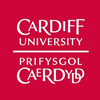Cardiff University is offering a fully-funded PhD scholarship in developing advanced Microwave Kinetic Inductance Detectors (MKIDs) for astronomy and industry applications. Join the Cardiff School of Physics and Astronomy and work with leading experts to push the limits of detector technology.
This scholarship is open to students from all countries. Applicants should have at least a 2:1 degree in Physics, Astronomy, or a related field. If English is not their first language, they must meet Cardiff University’s language requirements, such as an IELTS score of 6.5 overall, with at least 5.5 in each section.The Cardiff Astronomy Instrumentation Group (AIG) is pioneering the development of Microwave Kinetic Inductance Detectors (MKIDs), which are expected to lead the next generation of ultra-sensitive detectors for millimetre and THz wave applications. This project focuses on advancing MKID technology by enhancing multiplexing, miniaturizing detectors, and optimizing focal plane area usage to meet the stringent requirements of future astronomical and industrial instruments.
Cardiff University Information

 Established in 1997, Cardiff University is a non-profit public higher education institution located in the urban setting of the small city of Cardiff (population range of 250,000-499,999 inhabitants), Wales. Officially accredited and/or recognized by the Privy Council, Cardiff University (CU) is a very large (uniRank enrollment range: 30,000-34,999 students) coeducational higher education institution. Cardiff University (CU) offers courses and programs leading to officially recognized higher education degrees such as bachelor degrees, master degrees, doctorate degrees in several areas of study. See the uniRank degree levels and areas of study matrix below for further details. International applicants are eligible to apply for enrollment.
Established in 1997, Cardiff University is a non-profit public higher education institution located in the urban setting of the small city of Cardiff (population range of 250,000-499,999 inhabitants), Wales. Officially accredited and/or recognized by the Privy Council, Cardiff University (CU) is a very large (uniRank enrollment range: 30,000-34,999 students) coeducational higher education institution. Cardiff University (CU) offers courses and programs leading to officially recognized higher education degrees such as bachelor degrees, master degrees, doctorate degrees in several areas of study. See the uniRank degree levels and areas of study matrix below for further details. International applicants are eligible to apply for enrollment.
Offered Benefits
The Science and Technology Facilities Council (STFC) fully-funded scholarships cover tuition fees, a UKRI-standard stipend (£19,795 per annum for 2025/26), and additional support for training, research, and conference expenses. This opportunity is open to both UK/home and international candidates. For inquiries, contact .
Application Process
Applicants should apply to the Doctor of Philosophy in Physics and Astronomy program with a start date of 1st October 2025. Application materials include:
- Academic CV
- Degree certificates and transcripts (with certified translations if needed)
- Personal statement/covering letter
- Two references (one academic), to be submitted by referees directly to
In the “Research Proposal” section, include the project title and supervisors, and list any additional STFC projects of interest. In the funding section, specify STFC as the funding source.


 Established in 1997, Cardiff University is a non-profit public higher education institution located in the urban setting of the small city of Cardiff (population range of 250,000-499,999 inhabitants), Wales. Officially accredited and/or recognized by the Privy Council, Cardiff University (CU) is a very large (uniRank enrollment range: 30,000-34,999 students) coeducational higher education institution. Cardiff University (CU) offers courses and programs leading to officially recognized higher education degrees such as bachelor degrees, master degrees, doctorate degrees in several areas of study. See the uniRank degree levels and areas of study matrix below for further details. International applicants are eligible to apply for enrollment.
Established in 1997, Cardiff University is a non-profit public higher education institution located in the urban setting of the small city of Cardiff (population range of 250,000-499,999 inhabitants), Wales. Officially accredited and/or recognized by the Privy Council, Cardiff University (CU) is a very large (uniRank enrollment range: 30,000-34,999 students) coeducational higher education institution. Cardiff University (CU) offers courses and programs leading to officially recognized higher education degrees such as bachelor degrees, master degrees, doctorate degrees in several areas of study. See the uniRank degree levels and areas of study matrix below for further details. International applicants are eligible to apply for enrollment.